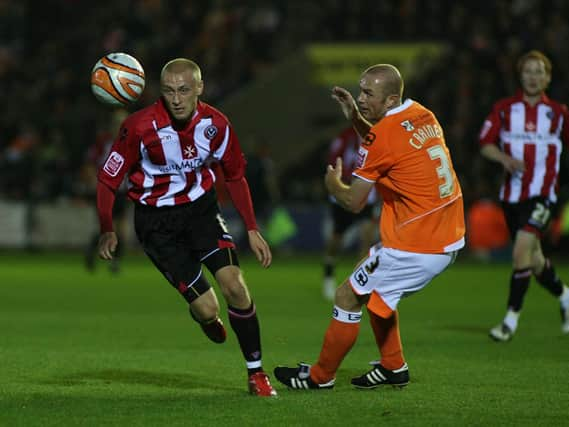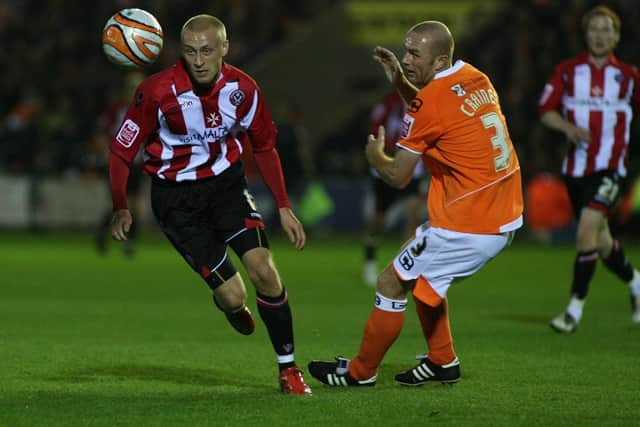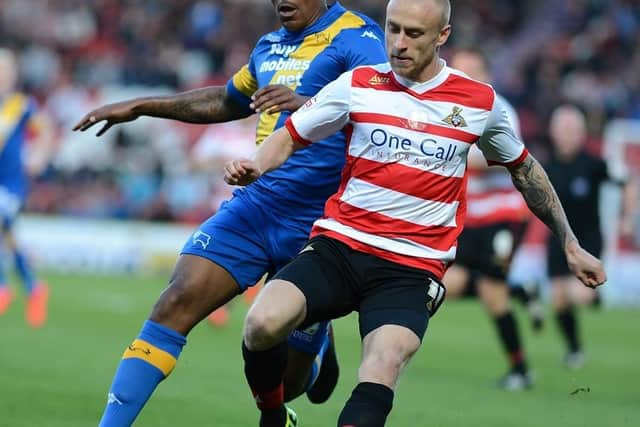'I searched for the easiest way to commit suicide' - former Sheffield United star David Cotterill opens up about his battle with depression


The Welsh international, still only 30 years old, spoke about his mental troubles in an interview with BBC Sport Wales' Chris Wathan, in which Cotterill revealed he has battled depression since his teens and spoke about how he turned to Lego in an attempt to cope.
"I had an Aston Martin, the big house, anything a person could want - but you can't help what's in the brain," Cotterill said.
Advertisement
Hide AdAdvertisement
Hide Ad"It's the most powerful tool you have and what you feel can block out everything you have. And when you're fighting that battle every day, it takes its toll.
'When you're around others the conversations are flowing and you tend to not have time to think about it, you're looking forward to going out to train. But there would be times when I finished training and I couldn't wait to go and lie in bed. I'd be there for hours.
"Particularly in the off-season, I'd just spend three or four days at a time not even eating, just thinking the worst things you can imagine and not actually sleeping at all. You'd stay there because you didn't want to face the world."
Cotterill joined United in 2008 from Wigan Athletic, initially on loan before signing a permanent deal, and helped them to the Championship play-off final at Wembley against Burnley in 2009. He left Bramall Lane to return to his native Wales with Swansea, and later had spells with Barnsley and Rovers.


Advertisement
Hide AdAdvertisement
Hide Ad"In the early stages, I'd always have to go and have a drive where I would spend hours in the car and think a lot of bad things,' Cotterill, currently without a club after being released by Birmingham City and seeing a spell in the Indian Super League cut short, added.Â
"I've searched for the easiest way to commit suicide. Then you think, how can you do that when you have children, a wife?
"You then have a couple of days when you kind of feel OK again, but it keeps repeating itself."


Cotterill says counselling and contact with a therapist have helped him, while the Professional Footballers' Association (PFA) also offered help and support. The English Football League has also partnered with the Mind charity this season, putting their logo on the back of every EFL player's shirt, but Cotterill remains to be convinced if mental health will ever be truly understood in football.
Advertisement
Hide AdAdvertisement
Hide Ad"Put it this way, if I went to a manager and said '˜I'm struggling mentally, I need a break or I need a little bit of help', there's no way he's playing me on a Saturday or a Tuesday," Cotterill said.
"He would say 'he's not mentally stable, he's not mentally up for it'. And my release was to go and play.


"I guarantee there's footballers all over the country who feel this way. They won't tell the manager because they're not going to jeopardise their place, they're not going to jeopardise their earnings to look after their family, so they're parking this to one side.
"I don't think you can go to the manager or club and say, 'by the way I'm not coming in today, I'm going to see a doctor because mentally I'm not feeling great'. It's not possible."
"I feel better for speaking about it," he added.
Advertisement
Hide AdAdvertisement
Hide Ad"When I spoke to my wife more about it I actually felt better. Your rash decisions and what you're doing doesn't make sense, but if you explain it more you're getting it off your chest and people can better understand why you act the way you act.
"If we're trying to protect injuries, knee injuries, foot injuries, whatever it might be, then why are we not protecting the brain? I don't get it. We definitely need to look into it.
"If everyone in football was open and honest about depression, there would be a scary number. A huge number."
For mental health help and support, contact Mind via 0300 123 3393, text 86463 or visit www.mind.org.uk.